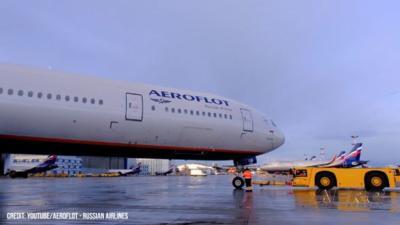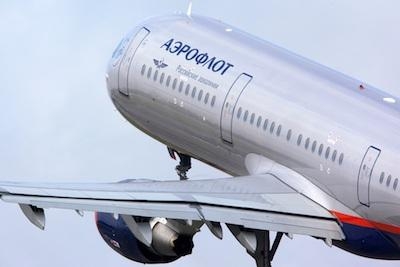Thu, Aug 11, 2022
Silence of the MELs
Belligerence against Ukraine has landed Russia in hot water with the international community—which swiftly levied sweeping sanctions against the superpower. In accordance with edicts handed down by their respective governments, American Boeing and European Airbus have halted sales of their aircraft, aircraft parts, and technical expertise to Russian air carriers. Desperate to keep their aircraft flying, Russian airlines have resorted to the age-old recourse of the desperate—cannibalism.

Cannibalism of aircraft usually occurs when the need for parts outpaces supply chains, and no alternative parts are available. As the airworthiness of commercial aircraft is predicated upon constant maintenance and component replacement, Russian airlines have had no choice but to remove aircraft from service and relegate them to the sad station of parts donors.
A leaked, unofficial report from within the Kremlin posits a dismal future for Russia’s aviation sector as the nation’s carrier’s attempt to replace Western airliners with Russian-made commercial aircraft. The cost of replacing Russia’s extant commercial fleet with one-thousand domestically produced airplanes by 2030 is estimated to cost 627-billion rubles—about $9.7-billion. Such a price tag is apt to prove too heavy a burden on Russian taxpayers—many of whom oppose their nation’s invasion of Ukraine.
In addition to cannibalism, Russian air carriers are endeavoring to source aircraft parts through Turkey, India, and China—countries alternately tacitly averse to the West or sympathetic to the Kremlin’s aims. China—likely fearing incurring Western sanctions of its own—has thus far reportedly turned down Russian airlines' requests for parts and technical support.

Owing to the increasingly dubious states of repair into which their fleets are falling, Russian airlines are currently prohibited from operating in the airspaces of most nations outside the Russian Federation. Critics of the West’s response to the Ukrainian conflict argue sanctions on Russia’s commercial aircraft industry are apt to harm primarily civilians forced to book travel aboard woefully underserviced aircraft.
Certainly, American and European resolve will be sternly tested when Aeroflot jets begin falling from Russian skies—as they inevitably will.
More News
From 2023 (YouTube Edition): "Ain’t Your Daddy’s Super Cub”—Don Wade Co-owned by Don and Ron Wade—the former of Don’s Dream Machines, a storied >[...]
Pilot-Rated Passenger Reported That The Pilot Did Not Adequately “Round Out” The Landing Flare And The Airplane Bounced And Yawed To The Right Analysis: The pilot state>[...]
Dead Reckoning Dead reckoning, as applied to flying, is the navigation of an airplane solely by means of computations based on airspeed, course, heading, wind direction, and speed,>[...]
Aero Linx: Lake Amphibian Club This website is created and sponsored by the Lake Amphibian Club, to help spread the word about these wonderful, versatile amphibians that can land j>[...]
“I am deeply honored to be sworn in as NASA administrator. NASA’s mission is as imperative and urgent as ever — to push the boundaries of human exploration, ignit>[...]
 Classic Aero-TV: In Praise of Alabamas Patriot Aircraft USA
Classic Aero-TV: In Praise of Alabamas Patriot Aircraft USA NTSB Final Report: Cirrus Design Corp SR22
NTSB Final Report: Cirrus Design Corp SR22 ANN's Daily Aero-Term (12.21.25): Dead Reckoning
ANN's Daily Aero-Term (12.21.25): Dead Reckoning ANN's Daily Aero-Linx (12.21.25)
ANN's Daily Aero-Linx (12.21.25) Aero-News: Quote of the Day (12.21.25)
Aero-News: Quote of the Day (12.21.25)




